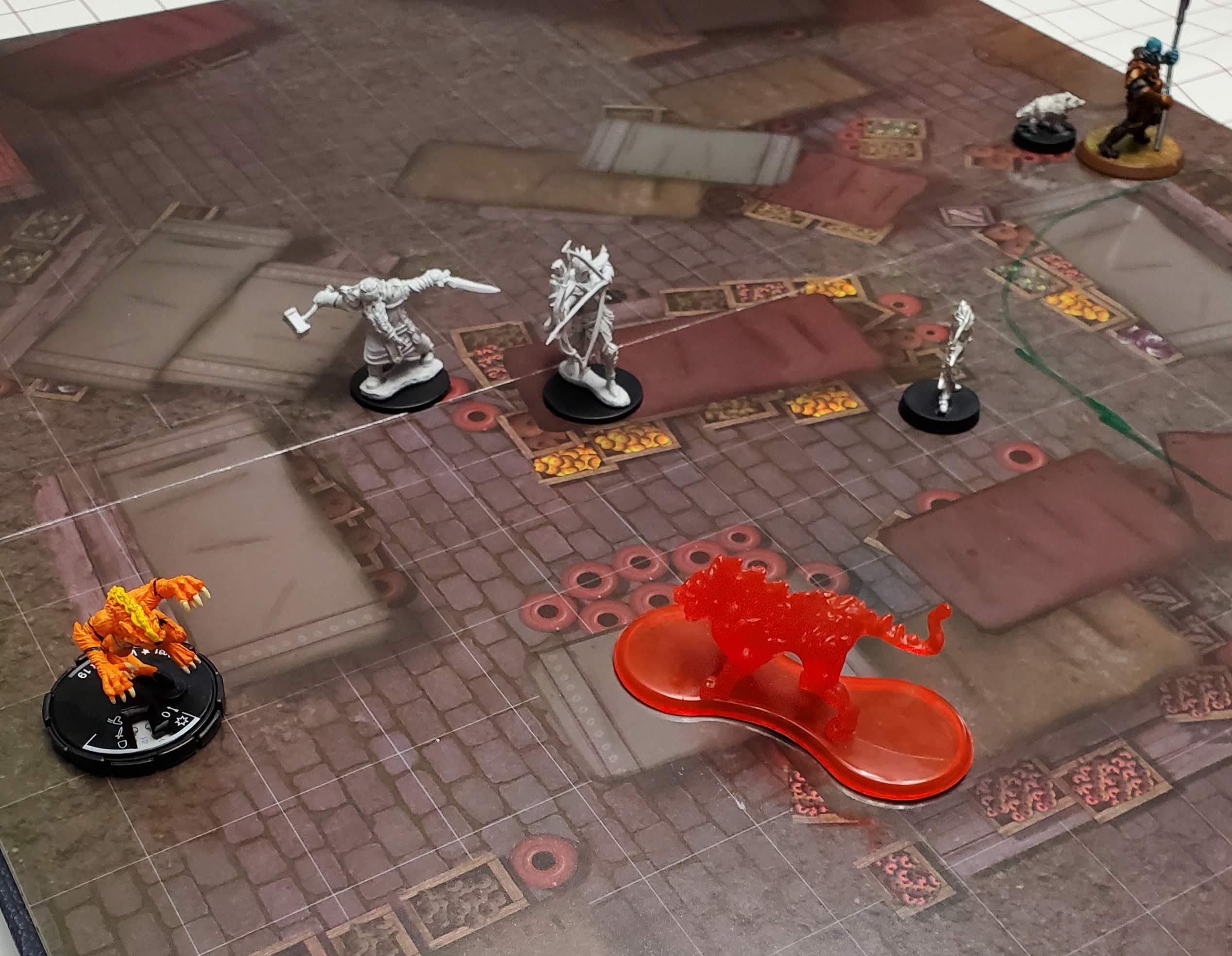Dungeons and Dragons (D&D) is a tabletop role-playing game that is played with a small group. Players take on the role of that created character. Players, guided by a dungeon master, use their imagination to explore a fantasy world, complete quests, and battle monsters. D&D is a great way to learn teamwork and problem-solving skills.
Here are some tips for how parents can teach their kids to play D&D:

You need a Dungeon Master (DM)
The DM creates and/or runs the game. They build and control the fantasy world the players populate. Even if you have an experienced DM for your game, a short game, with pre-generated characters is a good idea for new and younger players. Character generation is a fun way to engage your players but can take hours away from playtime. If you are taking on the dungeon master role yourself, starter sets come with easier content that you can read ahead and familiarize yourself with ahead of time to help younger or new players with. There are a few starter sets.
Starter sets:
- Dragons of Stormwreck Isle Buy it here on Amazon.
- Dungeons and Dragons Starter Set 5th Edition kit Buy it here on Amazon.
- D&D Essentials Kit Buy it here on Amazon.
Pre-generated characters also solves the problem of filling needed rolls. Most successful parties have a tank (a character that can take damage and be on the offensive) , a healer, and a variety or damage dealers.
Distractions will happen.
Plan for breaks in gameplay. New players need time to pick/use powers, will have questions on rules and their roles. Also, don’t take it personally if players lose interest mid-game and wander off. This happens with players of every level, new and experienced.
Start by explaining the basics of the game.

When starting out in the world of D&D, it’s important to understand the basics of the game. D&D can be complicated. Explain what each player’s role is in the game and what kinds of things they’ll be doing at the table. Some of that will involve teaching them about combat, magic spells, skills, and role-play.
Choose the right age group.
Not all kids are ready to play D&D at the same age. D&D requires hours of focus and sitting. Base gameplay on your players, and work around them.
Teach your child how to roll dice.
In order to play D&D, your child will need to know how to roll dice. This sounds silly. But trust me, teaching your kid how to throw the dice fairly without chucking them across the room will save everyone a lot of time in the long run. Dice trays or bowls can keep dice from accidental rolls across the room and under a couch.
Encourage them to think creatively.
D&D is all about using your imagination. Encourage your child to come up with their character’s backstory to get their imagination going. Try giving them a few prompts to get them started. For example, did your character grow up in a city, a village, a forest? Who taught them to use their skills. Once they start coming up with ideas, they’ll be ready to start role-playing with their new characters.
Then once they begin playing, make sure to have the DM encourage their creative solutions. As they are presented with in-game problems and challenges reward their creativity even if they approached it in an unexpected way.
Make sure everyone is having fun.

D&D is a game, so it should be fun! If someone isn’t having fun, talk to them about what’s not working for them and see if you can help make the game more enjoyable for everyone. Magic spells sound fun, but using them requires experience and access to what they do and when you can use them. Having spells bookmarked or buying spell cards and ready before you start can help stave frustration.
Play together as a family.
Dungeons and Dragons is a lot of fun, but it can be intimidating to learn if you don’t have anyone to show you the ropes. The best way to learn is by playing with friends and family who are already familiar with the game. That way, you can explore the fantasy world together and get everyone’s take on how to play your character. Plus, it’s just more fun to play with people you know and love. So gather up your nearest and dearest and get ready for some serious D&D action. It’ll be a blast!
What do you think? Sound off in the comments and let us know your thoughts!
Make sure to keep your eyes on Engaged Family Gaming for all of the latest news and reviews you need to Get Your Family Game On!
- Video Games for kids on Xbox One
- Video Games for kids on PS4
- Video Games for kids on Nintendo Switch
- Board Games for kids
Follow us on Facebook!
Follow us on Instagram!
Subscribe to our Podcast!
